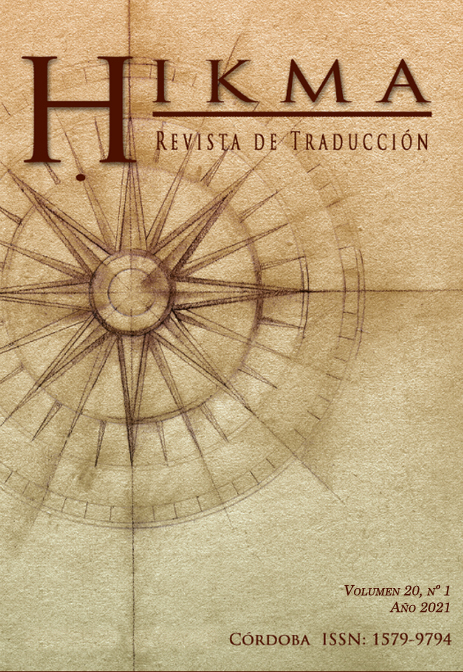R v Johnson: translating English constitutional discourse into Spanish for experts
Main Article Content
Abstract
This work is a translatological study of one of the so-called "Brexit judgements", the wording of which highlights the most important constitutional apparatuses of the United Kingdom. After a brief description of the peculiarities of the Anglo-Saxon constitutional legal discourse, which is quite different from the continental discourse of the Spanish legal system, a detailed study of the macro-structure of R v Johnson, as well as an approach to its major translatological peculiarities, will lead to an exhaustive lexical typology accounting for the translation challenges: the conceptual and lexical gaps arising from the differences between legal systems. Thus, after a count of the 20 key words in the source text by means of Antconc, the lexical phenomena of the sentence will be divided into three groups: institutions, acts and constitutional terms -mostly anisomorphisms-, which entail different levels of difficulty in their translation, some of which present the translator with real problems in making the target text readable. With a qualitative study of the possible strategies to be applied to translation, we will attempt to explain and solve some of the differences and obstacles difficult to overcome for the translator, originated in the different conceptualization of legal discourses and in the different organization of judicial decisions as textual genres.
Keywords: Legal translation, Legal lexicon, Legal genre, Brexit, English constitutionalism.
Downloads
Article Details

This work is licensed under a Creative Commons Attribution-NonCommercial-ShareAlike 4.0 International License.
Authors who publish with this journal agree to the following terms:
1. Authors retain copyright and grant the journal right of first publication with the work simultaneously licensed under a Creative Commons Attribution License that allows others to share the work with an acknowledgement of the work's authorship and initial publication in this journal.
2. Authors are able to enter into separate, additional contractual arrangements for the non-exclusive distribution of the journal's published version of the work (e.g., post it to an institutional repository or publish it in a book), with an acknowledgement of its initial publication in this journal.
3. Authors are permitted and encouraged to post their work online (e.g., in institutional repositories or on their website) prior to and during the submission process, as it can lead to productive exchanges, as well as earlier and greater citation of published work (See The Effect of Open Access).

